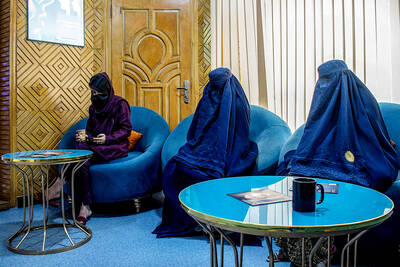A new form of drug drastically improves survival rates of younger women with the most common type of breast cancer, researchers said on Saturday, citing the results of an international clinical trial.
The findings, presented at the annual meeting of the American Society of Clinical Oncology in Chicago, showed that the addition of cell-cycle inhibitor ribociclib increased survival rates to 70 percent after three-and-a-half years.
The mortality rate was 29 percent less than when patients, all under 59 and pre-menopausal, were randomly assigned a placebo.
Lead author Sara Hurvitz said the study focused on a form of breast cancer that is fueled by the hormone estrogen and which accounts for two-thirds of all cases among younger women.
It is generally treated by therapies that block the hormone’s production.
“You actually can get synergy, or a better response, better cancer kill, by adding one of these cell-cycle inhibitors” on top of the hormone blocking therapy, Hurvitz said.
The drug works by inhibiting the activity of cancer-cell promoting enzymes. The treatment is less toxic than traditional chemotherapy, because it more selectively targets cancerous cells, blocking their ability to multiply.
Though advanced breast cancer is less common among younger women, its incidence grew 2 percent per year in the US between 1978 and 2008 for women aged 20 to 39, a previous study showed.
The new trial, which looked at more than 670 cases, included only women who had advanced cancer — stage four — for which they had not received prior hormone-blocking therapy.
“These are patients who tend to be diagnosed later, at a later stage in their disease, because we don’t have great screening modalities for young women,” Hurvitz said.
In addition, patients who develop breast cancer early tend to have more complex cases.
A pill is administered daily for 21 days followed by seven days off to allow the body time to recover, since two-thirds of patients have a moderate to severe drop in white cell count.
Jamie Bennett, a spokeswoman for Novartis, which markets the drug under the brand name Kisqali and funded the research, said it cost US$12,553 for a 28-day dose.
There is no cure for metastatic breast cancer and the majority of the women on the drug will require some form of therapy for the rest of their lives.
Oncologist Harold Burstein of the Dana-Farber Cancer Institute in Boston, who was not involved in the research, said it was “an important study,” having established that the use of the drug “translates into a significant survival benefit for women.”
“Hopefully, these data will enable access for this product for more women around the world, particularly in healthcare systems which assess value rigorously as part of their decisions for national access to drugs,” Burstein added.

DEADLOCK: Putin has vowed to continue fighting unless Ukraine cedes more land, while talks have been paused with no immediate results expected, the Kremlin said Russia on Friday said that peace talks with Kyiv were on “pause” as Ukrainian President Volodymyr Zelenskiy warned that Russian President Vladimir Putin still wanted to capture the whole of Ukraine. Meanwhile, US President Donald Trump said that he was running out of patience with Putin, and the NATO alliance said it would bolster its eastern front after Russian drones were shot down in Polish airspace this week. The latest blow to faltering diplomacy came as Russia’s army staged major military drills with its key ally Belarus. Despite Trump forcing the warring sides to hold direct talks and hosting Putin in Alaska, there

North Korea has executed people for watching or distributing foreign television shows, including popular South Korean dramas, as part of an intensifying crackdown on personal freedoms, a UN human rights report said on Friday. Surveillance has grown more pervasive since 2014 with the help of new technologies, while punishments have become harsher — including the introduction of the death penalty for offences such as sharing foreign TV dramas, the report said. The curbs make North Korea the most restrictive country in the world, said the 14-page UN report, which was based on interviews with more than 300 witnesses and victims who had

COMFORT WOMEN CLASH: Japan has strongly rejected South Korean court rulings ordering the government to provide reparations to Korean victims of sexual slavery The Japanese government yesterday defended its stance on wartime sexual slavery and described South Korean court rulings ordering Japanese compensation as violations of international law, after UN investigators criticized Tokyo for failing to ensure truth-finding and reparations for the victims. In its own response to UN human rights rapporteurs, South Korea called on Japan to “squarely face up to our painful history” and cited how Tokyo’s refusal to comply with court orders have denied the victims payment. The statements underscored how the two Asian US allies still hold key differences on the issue, even as they pause their on-and-off disputes over historical

Decked out with fake crystal chandeliers and velvet sofas, cosmetic surgery clinics in Afghanistan’s capital are a world away from the austerity of Taliban rule, where Botox, lip filler and hair transplants reign. Despite the Taliban authorities’ strict theocratic rule, and prevailing conservatism and poverty in Afghanistan, the 20 or so clinics in Kabul have flourished since the end of decades of war in the country. Foreign doctors, especially from Turkey, travel to Kabul to train Afghans, who equally undertake internships in Istanbul, while equipment is imported from Asia or Europe. In the waiting rooms, the clientele is often well-off and includes men